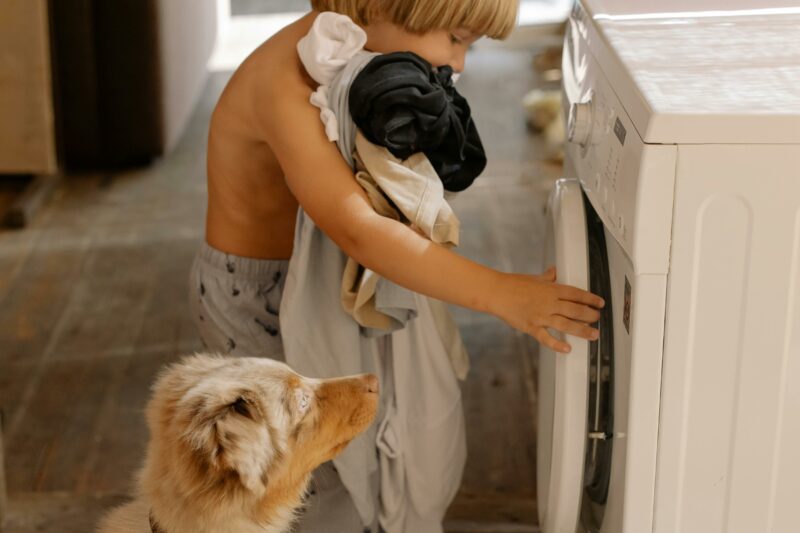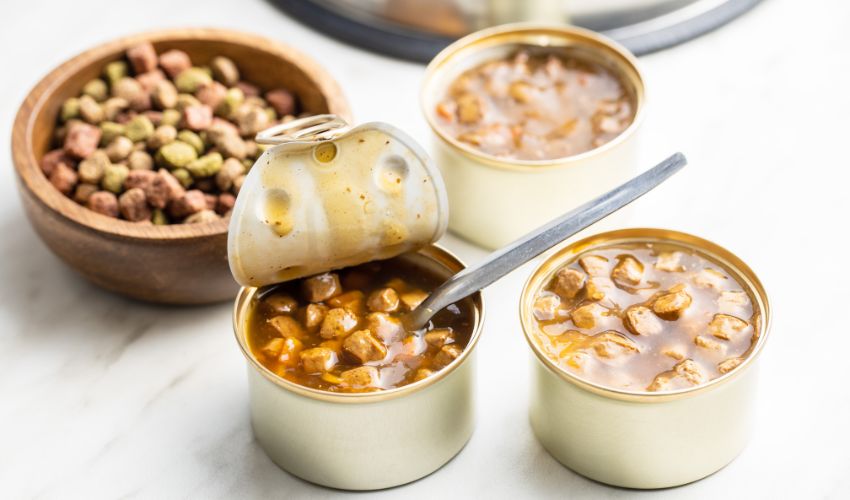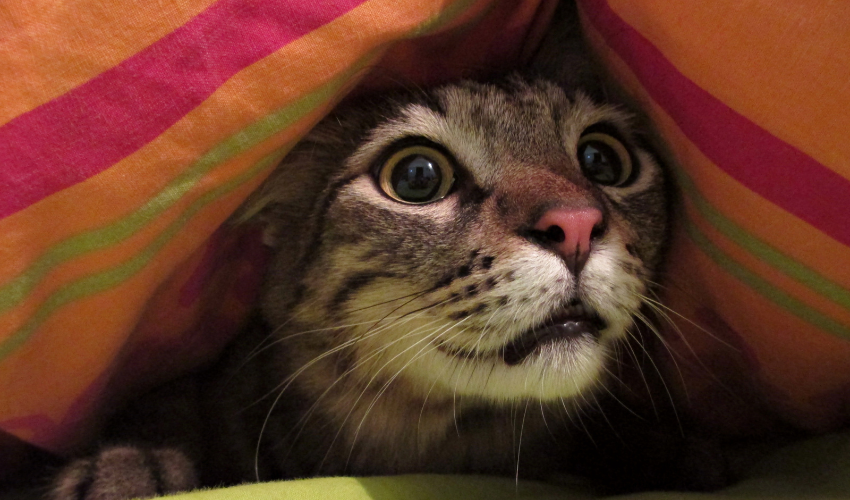Our homes provide more than simply safe havens for our beloved fur children; they are also sacred places where priceless memories are created, and relationships are fostered. It’s simple to forget how important it is to give our pets a clean home among all of the happiness and company they bring. But maintaining a clean and hygienic environment is crucial for our furry friends’ health and wellbeing, so it goes beyond simple aesthetics. In this investigation, we look into how important it is to keep our home tidy in order to protect our pets’ wellbeing. A clean home creates the groundwork for a happy and healthy relationship between pets and their human counterparts by lowering the danger of allergens and poisons, preventing accidents, and encouraging physical and mental stimulation.
Although when we strive for a spotless home, we sometimes fail to see the possible risks that may be present in our supply of cleaning supplies. Although these remedies claim to eliminate dirt and bacteria, there could be serious concerns for our beloved friends. Our pets, from inquisitive pups to seasoned seniors, are susceptible to the negative consequences of several cleaning products.
What makes some cleaning products for your home dangerous to your pets?
Despite being useful for maintaining a clean and hygienic home, cleaning products can be quite dangerous for our pets because of their potentially harmful chemical compositions. A number of variables increase the risk that some cleaning solutions pose:
- Chemical Contents: Several household cleansers include chemicals that can be dangerous or even lethal to pets if consumed, including ammonia, chlorine, and bleach. Animals may experience gastrointestinal distress, burns, respiratory problems, and irritation as a result of these substances.
- Fragrances and Dyes: When cleaning solutions are scented or dyed, pets may be drawn to them and end up consuming them or coming into touch with them. In sensitive animals, these chemicals may result in allergic responses, skin irritation, and breathing issues.
- Corrosive Properties: When a pet comes into contact with or ingests certain cleaning solutions, such as drain cleaners and oven cleaners, their skin, eyes, mouths, and digestive tracts may sustain severe burns.
- Volatility: Some cleaning supplies emit fumes that pets may breathe in and inhale, potentially causing poisoning or respiratory problems. In this sense, strongly scented goods like oven cleansers and air fresheners are especially dangerous.
- Packaging: If a pet chews on or punctures the packaging, they could unintentionally swallow cleaning solutions. Products that are liquid or gel-based and kept in easily accessible containers are more likely to be consumed.
- Residue: Chemical cleaning agent residues can remain on surfaces even after they have been cleaned, which puts pets at risk of ingesting them or coming into contact with them while grooming or exploring.
- Misuse or Accidental Exposure: The risk of accidental exposure and subsequent injury is increased when cleaning chemicals are used improperly, such as when they are used in unventilated spaces or left within reach of pets.
It’s critical for pet owners to carefully choose and utilize cleaning products that are safe for their furry friends in light of these issues. Selecting non-toxic, pet-safe substitutes and safely keeping cleaning supplies out of pets’ reach will help reduce the dangers related to using household cleansers.
What are some cleaning products that are toxic to pets?
1. Ammonia – Ammonium hydroxide, or ammonia mixed with water, is the most frequent form of ammonia that is listed on product labels. Since ammonium hydroxide is highly alkaline, pets’ skin, eyes, mouths, and digestive tracts may be exposed to it, resulting in serious burns and tissue damage. Ammonium hydroxide can cause irritation, inflammation, and ulceration of the affected tissues when consumed or exposed to even minute amounts of it. It may become poisonous to their entire body if they consume large amounts of ammonium hydroxide, either directly or through polluted surfaces or water sources. Toxicological symptoms can include nausea, vomiting, diarrhea, stomach discomfort, tremors, weakness, lethargy, and in extreme situations, coma.
2. Bleach and Chlorine – Strong chemical disinfectants like bleach and chlorine can be harmful to pets if they consume them, breathe them in, or absorb them through their skin. Pets that come into touch with or consume these compounds may suffer from a variety of negative side effects, such as vomiting, diarrhea, abdominal pain, difficulty breathing, and in more serious situations, organ failure or damage.
3. Formaldehyde – Pets that inhale formaldehyde can experience irritation and inflammation of the mucous membranes in their respiratory tracts. Formaldehyde is a severe respiratory irritant. Animals with pre-existing respiratory diseases or sensitivities are more susceptible to symptoms like coughing, sneezing, wheezing, nasal discharge, and trouble breathing when exposed to formaldehyde fumes. The International Agency for Research on Cancer (IARC) is one of several health bodies that classify formaldehyde as a recognized human carcinogen. Although there isn’t much data that directly links formaldehyde exposure to cancer in pets, long-term or chronic exposure to the chemical may eventually raise your pet’s risk of getting some cancers.

4. Phenol – Pets who are exposed to phenol may experience neurotoxic effects on their central nervous systems, which can cause symptoms like weakness, tremors, seizures, and in extreme circumstances, coma or even death. Phenol can also affect the blood’s ability to carry oxygen, which can result in methemoglobinemia, a disorder in which the blood is unable to carry oxygen efficiently. Methemoglobinemia in pets can cause cyanosis, a bluish staining of the skin and mucous membranes, as well as weakness, lethargy, and breathing difficulties.
5. Isopropyl alcohol – Pets who consume isopropyl alcohol may have hypoglycemia, or a drop in blood sugar, especially in cats. Hypoglycemia in pets can cause weakness, sluggishness, shaking, convulsions, and collapse.
Keeping your home tidy is crucial for your health and the health of your pets. But it’s also critical to make sure that your cleaning regimen puts your pets’ comfort and health first. You can create a clean and healthy environment where everyone can thrive by regularly grooming and washing your pets, keeping dangerous chemicals out of reach, and using pet-safe cleaning products. A happy and healthy home is one where you and your pets can spend quality time together in a secure and cozy setting. Therefore, consider your pets’ welfare when you start your cleaning tasks.













